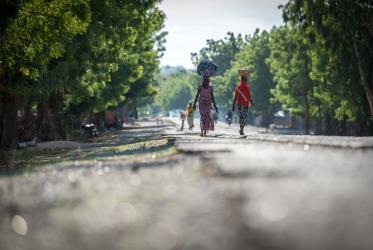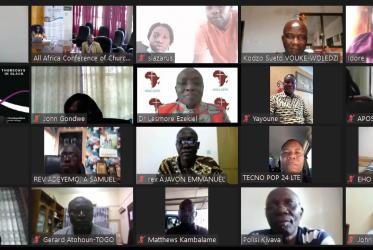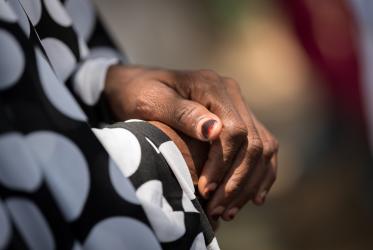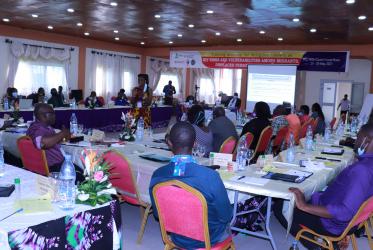Evangelical Church of Cameroon
(Eglise évangélique du Cameroun, EEC)
The gospel was first brought to what is now Cameroon by African-American missionaries from Jamaica. They joined the work of the Baptist Missionary Society (London) in the area which began in 1845. After 1884, when the territory came under German rule, the Basel Mission took over. Following the defeat of Germany in the first world war Cameroon was divided into two mandated territories of the League of Nations. In the part of the country placed under French mandate the Paris Mission Society replaced the Basel Mission. Its work gave birth to the Evangelical Church of Cameroon, which was officially established in 1951 and became autonomous in 1957. The church has extended itself and has grown very rapidly, particularly in the regions of Bamileke and Bamoun and in the south.
The Evangelical Church of Cameroon understands itself as part of the universal church, the body of Christ endowed with the preaching of the good news of Jesus Christ and giving testimony to God's kingdom. It recognizes the sovereign authority of the word of God and is in communion with all the churches having Jesus Christ as their foundation. The pastors of the EEC are trained at the theological college in Ndoungue and the Faculty of Protestant Theology in Yaoundé.
The EEC is organized in parishes (which can comprise one or more annexes and places of worship), districts or consistories, regional synods, and a general synod at the national level which is the highest decision-making body of the church. The regional and general synods meet annually. An executive commission represents the general synod in between meetings. Four departments contribute to the life and witness of the church: Christian education, which is in charge of theological and liturgical research, hymnology and church choirs, and children's worship; communication and information, comprised of a press service, television unit and radio service; youth, responsible for the Christian Youth Union and four youth centres, and organizing specific programmes for parish youth, students in colleges and universities, youth in towns and villages; Christian Women Union, which promotes the participation of women in the church and the society and runs a socio-educational centre for young people. The church has also a group for justice, peace and creation which is involved in the fight against HIV/AIDS and drug abuse, care for street children, training for self-employment and the issue of violence against women.
The EEC runs extensive educational, medical and social services. It has 53 nursery and 140 primary schools, and 13 secondary and technical colleges; three more colleges are being planned. In the medical field four hospitals and 39 dispensaries and health centres are at the disposal of the people. Several social centres take care of children and youth who are in need of assistance. In the area of development the EEC has five agricultural schools and three centres for training and integrated development. It has also a sailors' community centre.





